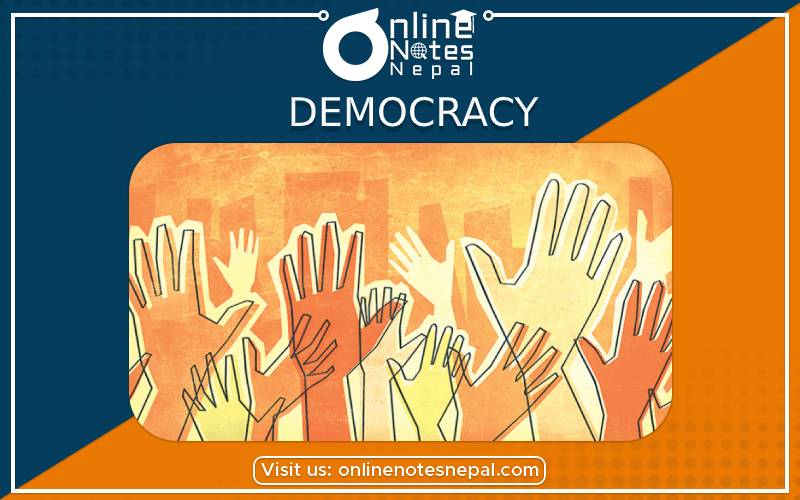Published by: Nuru
Published date: 25 Jan 2022

In this topic Democracy, we describe the introduction of democracy, and democratic culture features. Reference notes of Grade 7.
Democracy is a government in which power and civic responsibility are exercised by all adult citizens, directly, or through their freely elected representatives. Democracy is the government for the people, by the people, and of the people.
Democracy is the popular form of government in the modern world. That means, all the people should be able to have their say in one way or another in everything that affects their lives. Democracy is not only a system of government, it is the way of life.
It establishes peace and order, mutual relation, and co-existence among various people. In a democratic culture, all the citizens can participate and feel they have a stake, a culture in which social privileges and status hierarchical have been disestablished. Democracies always live in social conditions partially hostile to the attainment of democratic ideals.
Without the active participation of people, democracy becomes useless. Preservation and promotion of democratic culture depend on the following things listed below:
a. Sovereignty
Sovereignty is the prime factor of democracy. Sovereignty is a substantive term designating supreme authority over some policy. It is the power to do everything in a state without accountability. Sovereignty in government is that public authority that directs or orders what is to be done by each member associated in relation to the association.
b. Rule of law
The rule of the law states that people's representatives have the rule according to the laws of the state not as per their own self-interest. The people have to follow the rule of the rule as the rule is made for them.
c. Participation
Participation is the act of taking part in something. It indicates the active involvement of people in a democratic culture, such as the election. Participation is a right held by all people to engage in society and in the decisions that impact their lives.
d. Election
An election is a formal decision-making process by which a population chooses an individual to hold public office. People should take active participation in the periodic election to make democracy alive and fruitful. National and local elections in the fixed years of an interval are the lifeblood of a democratic culture.
e. Social justice
Social justice is the view that everyone deserves equal economic, political, and social rights and opportunities. It indicates that the heart of a democratic government is its delivery of social justice to people. People like the handicapped and disabled must get basic facilities. They need protection and opportunities as other citizens.